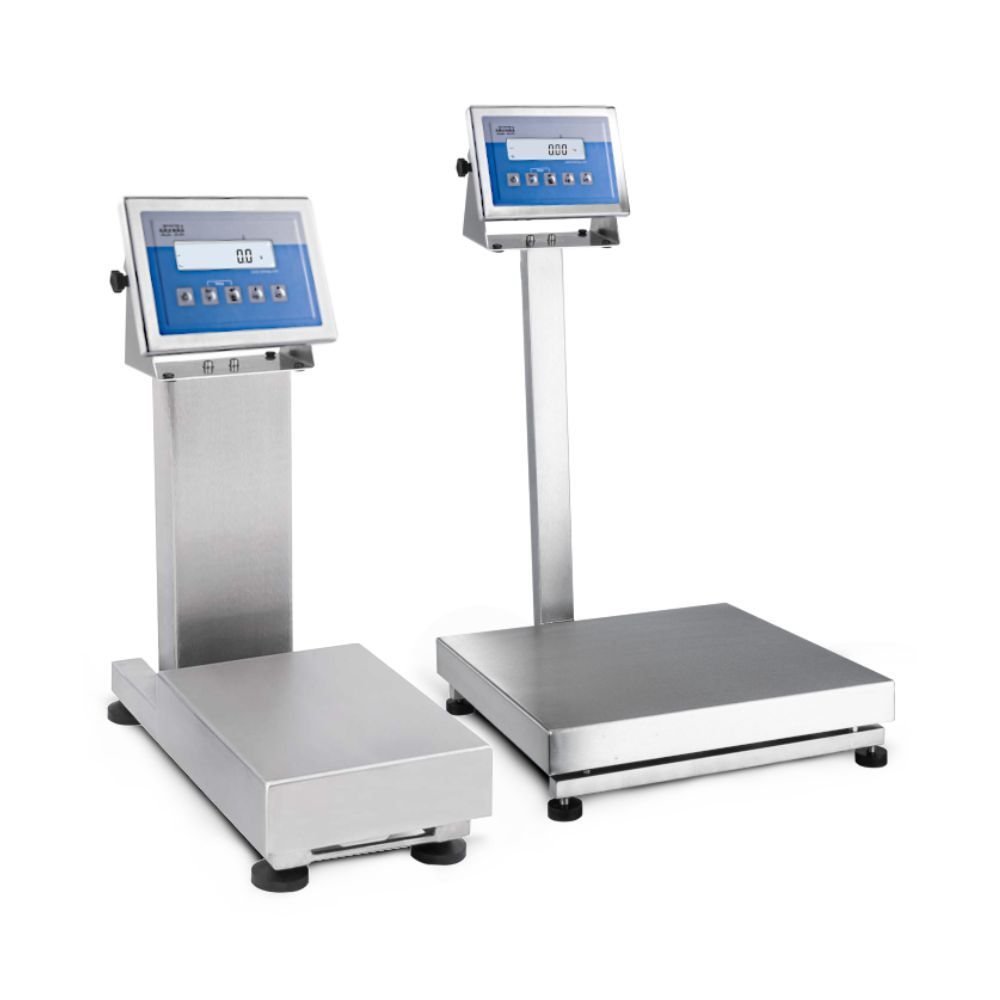The Importance of Regular Calibration for Your Industrial Scales
How Industrial Scales Job: An Extensive Summary for New Users
Recognizing the mechanics behind industrial ranges is critical for new individuals that want to ensure accuracy in their measurements. As we explore these parts, one should think about just how these elements engage to enhance performance in diverse industrial applications.
Basics of Industrial Scales
Industrial scales are crucial devices utilized throughout different sectors, consisting of production, logistics, and farming, to ensure precise weight dimensions of hefty loads. The essential concept behind commercial scales includes the conversion of weight right into a quantifiable type that can be shown digitally or analogically. These scales employ numerous devices, such as load cells or mechanical levers, to identify the weight of objects positioned upon them.

Along with their measurement capacities, commercial scales are made to stand up to harsh environments, including durable building that stands up to dust, dampness, and hefty influences. Calibration and upkeep are important to make sure precision, as even minor disparities can bring about substantial economic effects. By recognizing the fundamentals of commercial scales, users can value their value in various industrial applications.
Types of Industrial Scales
Numerous kinds of commercial ranges deal with the diverse demands of various sectors, each developed to handle certain weighing tasks with precision and reliability. Among one of the most typical kinds are flooring scales, which are excellent for weighing hefty and cumbersome things. These ranges usually include huge systems and can suit palletized goods, making them essential in storehouses and delivery facilities.
One more kind is bench ranges, which are commonly used for smaller items in manufacturing and retail setups. They provide exact dimensions for products that require precision, such as chemicals or parts in production line (Industrial Scales). For mobile operations, portable ranges provide flexibility and ease of transport, appropriate for fieldwork or short-term installations
Additionally, specialized ranges like checkweighers are utilized in manufacturing lines to keep quality control by making sure that items satisfy weight specs. Each type of commercial scale plays a crucial function in enhancing operational efficiency and precision throughout numerous markets.
Just How Evaluating Mechanisms Job
Evaluating mechanisms are necessary components that make it possible for precise dimension of mass throughout various industrial ranges. These devices utilize different principles of physics and design to offer specific weight analyses, crucial for supply administration, quality assurance, and conformity with regulatory requirements.
One usual kind of weighing device is the lots cell, which operates on the principle of pressure determines. When a lots is applied, the load cell deforms somewhat, generating an electric signal symmetrical to the weight. This signal is then exchanged a readable weight dimension by the range's electronics.
One more widely used mechanism is the mechanical balance, which employs a system of weights and levers. Industrial Scales. This technique depends on the concept of balance, where the weight of the things being gauged is balanced versus known weights, enabling direct measurement
In addition, hydraulic and pneumatic scales leverage fluid characteristics principles to measure weight. These systems utilize the pressure applied by a lots to identify weight, offering high accuracy for massive loads.
Appropriate Use Methods
When utilizing industrial ranges, sticking to correct usage strategies is vital for guaranteeing precise dimensions and preserving tools stability. Most importantly, it is vital to pick the appropriate scale for your specific application, as scales vary in capacity and accuracy.
Before considering, ensure that the range is put on a secure, level surface area devoid of vibrations or disturbances. This will assist to reduce mistakes brought on by outside variables. In addition, adjust the scale according to the producer's specifications before make use of, ensuring that it is working correctly.
When placing things on the range, disperse the weight equally to prevent tipping or damaging the equipment. Constantly allow the range to support prior to taping the weight, as variations might occur throughout initial positioning. For bulk materials, utilize containers that are proper for the scale size to stop overloading.
Moreover, prevent positioning overly warm or cool products straight on the range, as temperature level variations can impact accuracy. Maintain the weighing platform cost-free and clean of particles to stop contamination and guarantee trusted outcomes. By following these methods, individuals can make best use of the efficiency and longevity of their industrial ranges.
Maintenance and Calibration Tips
Making certain the longevity and accuracy of commercial ranges calls for diligent maintenance and normal calibration. A precautionary maintenance routine is essential; it should include regular evaluations to recognize deterioration, particularly on tons cells and various other sensitive components. Frequently cleaning the scale's surface and ensuring the surrounding location is without debris will certainly assist preserve its stability and performance.
Calibration is equally crucial and need to be executed at routine intervals or whenever the range experiences substantial changes internet in temperature, humidity, or physical variation. Utilize licensed calibration weights that are traceable to nationwide standards for accuracy. Paper each calibration session thoroughly to track efficiency gradually and identify any type of click for more info patterns or repeating issues.
Train all operators on appropriate scale usage and upkeep protocols to guarantee constant performance and precision. By adhering to these upkeep and calibration tips, users can boost the reliability of their commercial ranges, making certain ideal procedure in any setup.
Conclusion

Recognizing the auto mechanics behind industrial scales is important for new individuals who desire to ensure precision in their measurements.Industrial scales are vital devices used across different fields, consisting of production, logistics, and farming, to guarantee exact weight measurements of heavy lots. The basic principle behind commercial scales involves the conversion of weight right into a measurable type that can be presented electronically or analogically. By recognizing the fundamentals of industrial ranges, customers can value their significance in different commercial applications.
In verdict, understanding the procedure my explanation and upkeep of commercial scales is critical for making certain precise weight measurements in different applications. (Industrial Scales)